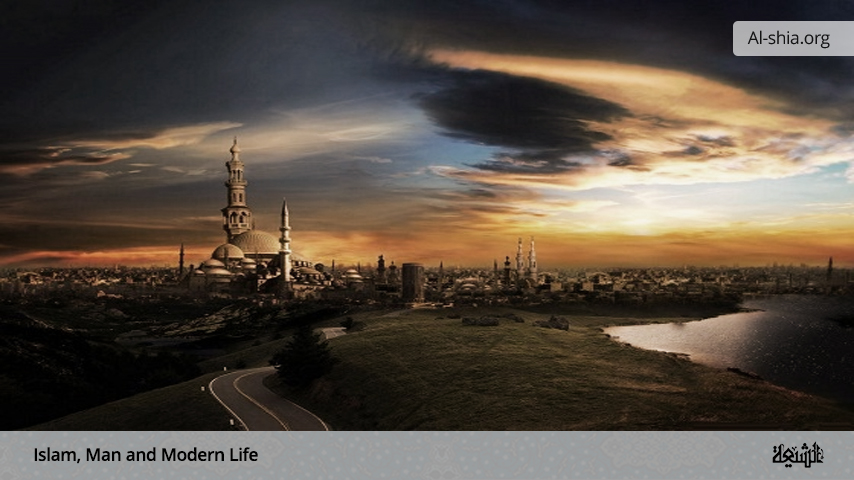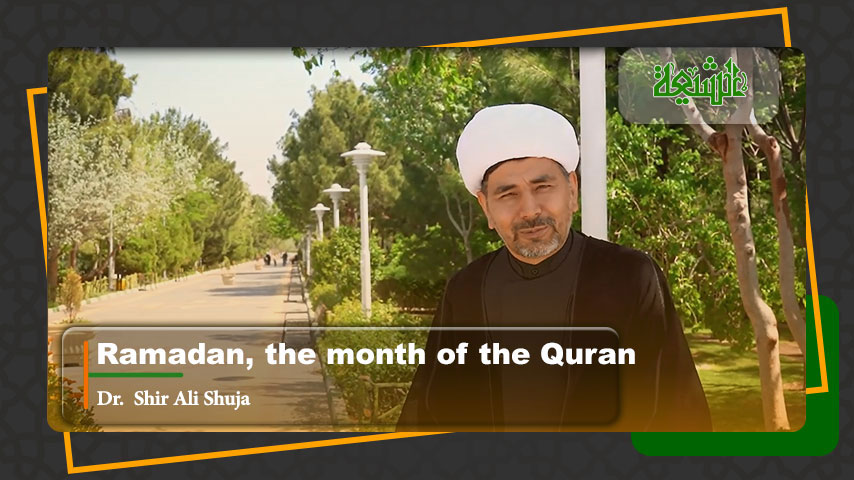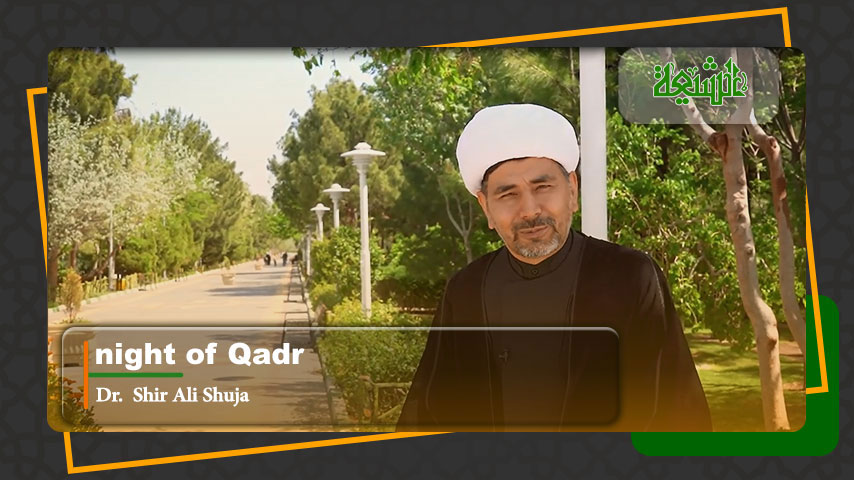The question of religion and modernity is one of those subjects that do not concern Muslims alone. Other religions also had to face this question. Many liberal-minded people in the world have renounced religion because they are under the impression that religion and modern life are incompatible. They think that inertia, stagnation, and rigidity are the inherent properties of religiousness. In other words, they think that inertia, monotony, and the maintenance of the status quo are the characteristics of religion.
The late Mr Nehru, a former Prime Minister of India, had secular ideas and did not have faith in any religion. It appears from his statements that what made him averse to religion was its rigidity and monotony. Towards the end of his life, Nehru felt a vacuum within himself and in the world and believed that it could be filled only by a spiritual force. But still, he was not inclined to accept any religion, because he believed that a state of rigidity and monotony pervaded all religions.
An Indian journalist, named Karanjia, interviewed Nehru towards the end of the latter’s life and apparently, this was the last interview during which Nehru expressed his views on general world problems. While talking about Gandhi, Karanjia said: “Some liberal and progressive elements believe that Gandhi, through his emotional solutions and moral and spiritual ways, weakened and dampened your original belief in scientific socialism”. In the course of his reply, Nehru said: “It is necessary and good to take advantage of moral and spiritual ways. I have always agreed with Gandhi in this respect. I believe that it is more necessary to take advantage of these means, for now, more than ever, we need moral and spiritual answers to the questions resulting from the moral vacuum caused by the modern culture, which is becoming popular.”
Then Karanjia put questions about Marxism. Nehru admitted its imperfection and, in his replies, pointed out some of its failures. He again suggested a spiritual solution to the world’s problems. At this juncture, Karanjia said: “Mr Nehru, does not your present concept of moral and spiritual solutions make you different from yesterday’s Jawaharlal (Nehru himself during his youth)? What you have said gives an idea that Mr Nehru, towards the end of his life, has come out in search of God”.
Nehru said: “Yes, I have changed. My emphasis on moral and spiritual values and the solutions are not unintentional”. He added: “Now the question is how to raise the morality and spiritualism to a higher level. No doubt, for this purpose, religion is there, but unfortunately, it has taken the shape of short-sighted and rigid ritualism and has been reduced to dry formalities. Only its apparent form and external shell have remained and its real spirit and concept have disappeared”.
Islam and the requirements of the time
Of all the religions, Islam alone is more concerned with all the aspects of human life. Its teachings are not confined to acts of worship such as ritual prayers and to a set of moral counsels. As Islam has dealt with men’s relations with God, it has also given the broad lines of men’s relations with each other. It has, in various forms, dealt with individual rights and obligations, too. That is why the question of whether its teachings are applicable or not to the ever-changing circumstances is more valid in the case of Islam than in that any other religion. Incidentally, many non-Muslim intellectuals and writers have studied the social and civil laws of Islam and have commended them as a body of progressive laws. They have paid rich tributes to Islam, as a living and everlasting religion, and have recognized the applicability of its laws to all times and circumstances.
The well-known liberal-minded English writer, Bernard Shaw has said: “I have always held the religion of The Prophet Muhammad (PBUHH) in high estimation, because of its wonderful vitality. It is the only religion that appears to me to possess that assimilating capability to the changing phase of existence, which can make itself appeal to every age. I have prophesied about the faith of Muhammad that it would be acceptable to the Europe of tomorrow, and the signs of this are becoming apparent even now. The medieval ecclesiastics, either through ignorance or bigotry, painted Muhammadanism in the darkest colours. They were, in fact, trained both to hate the man, Muhammad, and his religion. To them Muhammad was anti-Christ. I have studied him, the wonderful man, and, in my opinion, far from being anti-Christ, he must be called the Savior of Humanity. I believe that if a man like him were to assume the leadership of the modern world, he would succeed in solving its problems in a way that would bring it the much-needed peace and happiness”.
Dr Shibli Shama’il is an Arab materialist from Lebanon. He, for the first time, translated Darwin’s ‘Origin of Species’ into Arabic, along with the German scientist Boucher’s commentary on it, giving it the name of “A weapon against religious beliefs”. Though he is a materialist, he does not feel shy about admiring Islam and its great founder. He appreciates Islam as a living religion, applicable to all times. This man, in the second volume of his book, “Philosophy of Evolution”, which he has published in Arabic, has written an article under the caption “The Qur’an and Civilization”. He has written this article to refute a non-Muslim, who had travelled to Muslim countries and had expressed the opinion that Islam was responsible for the decline of the Muslims. Shibli Shama’il has tried to prove that actually, the cause of the decline of the Muslims is their deviation from the social teachings of Islam. Those Europeans who attack Islam, either do not know it or criticize it with the bad intention of making the people of the East sceptical about their laws and their system with a view to keep them under western tutelage.
During our time, the question of whether Islam is compatible with the present age has become a burning question. We meet a cross-section of people, especially those belonging to the educated class and we find that this question is asked more often than other questions.
Objections
Sometimes, these people give a philosophical turn to their query and say that everything in this world is subject to change. Nothing is static and stationary, human society is no exception. Then, how can a body of laws remain unchanged through the ages? If we look at this question from a purely philosophical point of view, the answer is simple. It is the material things of the world, which are ever-changing; which grow and decline, and which are subject to evolution and decay. As for the universal laws, they do not change. For example, all living things have evolved and continue to evolve according to certain laws that have been set forth by scientists. The living things themselves are, no doubt, ever-changing, but the laws of their evolution and development are not subject to any change.
Moreover, we are at present talking about the laws. In this respect, it makes no difference whether the laws are natural or have been framed and compiled, for it is possible that the laws which have been framed might have nature as their source and be in conformity with the evolutionary process of the individuals as well as the human society as a whole. Anyhow, the queries in respect of the compatibility and incompatibility of Islam with the requirements of the time do not have a general and philosophical aspect alone.
The question, which is more often asked, is that when the laws are framed to meet human requirements which are not constant, how can social laws be constant and unalterable? It is a good question. Incidentally, it is a miraculous characteristic of Islam that it provides constant laws to meet all constant requirements of the individuals and the society, and flexible laws for the temporary and changing requirements. This is its characteristic of which all judicious and knowledgeable Muslims are proud. We propose to explain it further to an extent appropriate to the present occasion.
Is social change compatible with time?
Before going into this question, we should like to bring forward two points:
The first point is that most of the people who talk of progress, development and change in a situation suppose that any social change, especially if its source is in the West, is the consequence of progress and development. This is one of the most erroneous ideas entertained by the present generation. These people are under the impression that as the means of life change from day to day, and the imperfect ones are replaced by the perfect ones and as science and industry are constantly advancing, all changes in human life are a sort of progress and advancement and should be welcomed as such. Not only that, they think that such changes are inevitable and have to come with the passage of time.
In fact, all changes are not the direct result of the advancement of science and industry, nor are they inevitable. While science is progressing, the selfish and animal nature of man is also not idle. Knowledge and wisdom carry man towards perfection and selfish and animal-human nature pushes him towards corruption and perversion. The animal nature of man always tries to utilize knowledge as a means of attaining its base desires. With the passage of time, as progress and development take place, corruption and perversion also grow. We have to march forward with the advancement of time, but at the same time, we must fight corruption also.
The reformer and the reactionary both fight against time, with the difference that the reformer fights against the perversion of time and the reactionary fights against its progress. If we regard time and its changes as the criterion of all good and evil, then what is the criterion to judge time itself? If everything should conform to time, then what should time conform to? If a man should follow time and its changes with folded hands, then what will happen to the constructive and creative role of the human will? Man is riding the vehicle of time, which is in motion. He must not be negligent in guiding and controlling his vehicle. Otherwise, he will be like a person mounted on horseback, who leaves himself to the will of the horse.
To be continued!
















